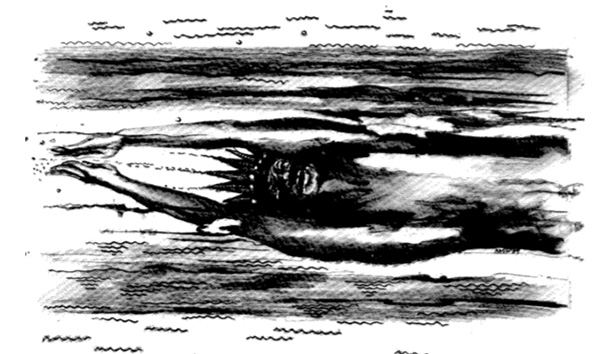For Albert Camus, the French Revolution initiated the modern age, killing God in the person of His representative on earth, the monarch. After which “Utopia replaces God by the future,” as Camus nicely phrases it in L’Homme Revoke. God’s anointed could no longer justify arbitrary action in this world by divine transcendence, and man (read “the people” today) became deified, with what results we know. The firing squad replaces the altar, even in Iran; and we no longer need a figure from the shadows like the Ayatollah to remind us that God has become the people.
At this point in the amputation of noumenal values the rebel turns into the terrorist, and abandons existence; as Camus puts it, “To be nothing—that is the cry of the mind exhausted by its own rebellion.” Having watched two attempts at revolution in ex-British colonies (Malaya and Grenada), both abortive, I realize Camus is right; there is always a Robespierre waiting to be born. But surely he is wrong in completely ignoring the British revolution of 1642-1649, perhaps because he knew little about it. In this case, not only was the king by divine right beheaded, but his principal cleric. Archbishop Laud, went under the axe four years before him. Since then no prelate has held political office in England, though that gaitered buffoon (and Laud’s successor), the Red Dean of Canterbury, made an ineffectual try.
Perhaps also the fact that the monarchy was solidly restored in England upset Camus’ theory; after all, the Bourbon restoration of 1816 in France soon came to an end with Louis-Philippe accepting the Lieutenant-Generalship of the kingdom in 1830. “Kings were put to death long before January 21, 1793,” Camus concedes, but he makes no mention of Charles I, and brushes aside regicides like Ravaillac and Damiens as seeking reform rather than revolution. “They wanted another king and that was all. It never occurred to them that the throne could remain empty forever.” It did to John Milton. Camus’ lacuna or blind spot as regards England is made good in a copious compilation of contemporary sources, The Good Old Cause, edited by two Oxford Marxist dons, Christopher Hill and Edmund Dell. (That book was reviewed by Hugh Trevor-Roper under the heading “Up Hill and Down Dell.”)
In 1979 I watched a handful of West Indians, mostly trained in London and assisted by Cubans, topple a defenseless parliamentary government in Grenada, then as now an independent Windward Island in the Caribbean. They were led by a handsome rabble-rouser called Maurice Bishop who was to end up playing a mixture of Kerensky and Trotsky (not to mention Barnum) to his assistant Bernard Coard’s Lenin in an almost pedantic impersonation of the Russian revolution.
Bishop’s “coop de tat” began ostensibly as a reform, but soon lost itself in the mire of a Marxism that could mean anything since it meant nothing—to the average canecutter or nutmeg-grower on the island. In fact, since the minutes of his Central Committee were captured by the incoming 82nd Airborne Intelligence in 1983, we now know that this group, half-nihilist fanatics, half-South Bronx street gang, spent 55 hours of their last week of office debating the semantics of their rhetoric, all garbed in the revolting nuts-and-bolts jargon of the mystery. Bishop was killed (going to his end with a jaw problem like Robespierre’s, too) along with his pregnant mistress and sundry ministers. For this bloodbath Bernard Coard, his Jamaican wife, and a dozen henchmen (some assuming lurid Moslem monikers) were sentenced to death by hanging, after trial before a jury of their peers, on December 4, 1986. Their sentences are still under filibustering appeal, aided from the sidelines by the customary pack of liberal lawyers from without (Ramsey Clark Anthony Lord Gifford).
I doubt if any of Bishop’s New Jewel Movement ever read Marx, let alone French authors of the revolution. For when your revo is palpably a disaster, as in Cuba, you create men compelled publicly to admire it, like the Pointe Salines workers imported from Oriente province to build an airstrip. Reality has no say in the matter; the whole rotten magic is called a science, which even Marx was bemused into thinking his theory at the end.
Here Bishop’s New Jewel attempt at bloody revolution ran into the highly religious nature of a Windward Island. This has to be felt at first hand to be understood. Grenadians are ardent churchgoers (most, but by no means all, Catholic), and church services and related happenings play a strong social role in the community. Women sing hymns at work. Sunday radio in the region is completely religious, until cricket in the afternoon. Within religion lay Camus’ “future” and the New Jewelers couldn’t crack it. The, island’s Bishop Charles was fulminated at for years, as a CIA spy and so on, but he was not imprisoned, unlike the luckless group who tried to start a newspaper and found themselves in lightless cells. For religion allows in the imagination, whereas Marxism encloses it.
So there was great joy when men dropped from those birds in the sky to rescue us. Maurice Bishop’s coup, like that of the Ortegas in Nicaragua, and that of Desi Bouterse in Suriname, took place, significantly enough, in the last year of James Earl Carter’s presidency when, as one Iris Murdoch character puts it, “it’s not only our destiny but our duty to be powerless.” For once we weren’t.

Leave a Reply